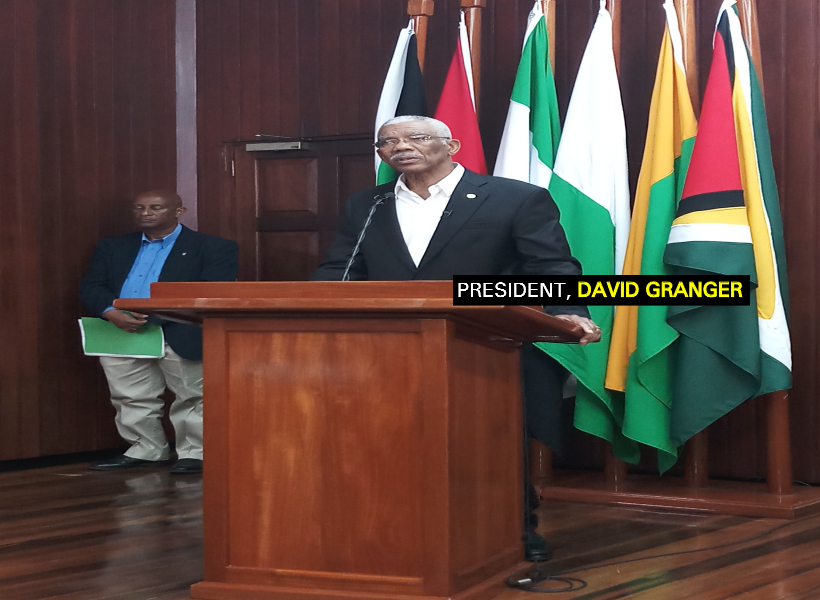The APNU+AFC government’s push to become a digital state is not a “sideshow.” In fact, it is essential to educational improvement. This is according to President David Granger.
Granger said that the digital state aims at establishing a network of connectivity; linking every person, community and government agency in the entire country.
He made these remarks and more, during an event at the Cyril Potter College of Education (CPCE), yesterday.
This digital state, he said, can be realised when Information Communication Technology (ICT) is applied to add value to production and service sectors.
This, the President pointed out, will trigger economic transformation since it will spawn knowledge-based industries, diversify the economy away from over-dependence on primary production and move manufacturing up the value chain, and, at the same time, tap into larger external markets.
The Head of State further said that the digital state will deliver quality public services across the country and will reduce the need for citizens to travel outside of their regions of residence, in the years to come, to access legal services, acquire passports; examine their academic and medical records; record births and deaths; receive social security benefits, register businesses, renew drivers’ licences, file income-tax returns and embark on trade and investment enterprises.
Since the launch of the One Laptop per Teacher (OLPT) Initiative on October 5, 2016, almost 9,000 laptops have been distributed to teachers, and more are slated to be distributed in the future.
President Granger said the OLPT initiative reasserts the importance of education to the nation, acknowledges the role of information in education and the value of teachers in the delivery of that information to students.
Further, he said that the initiative started the process of modernizing ICT development, starting with educators – the brain of our public education system.
“Teachers must be geared for the important role in educating our students for the ‘good life’ as citizens in the 21st century. The teaching of Science, Technology, Engineering and Mathematics (STEM) is being accorded priority,” the President said.
He explained that STEM education allows the country to develop a more technologically competent workforce, which is essential to the establishment of a digital state.
In keeping with this goal, the President launched the National Endowment for Science and Technology (NEST) to support the teaching of Science and Technology in our schools, including through improving science and ICT laboratories.













